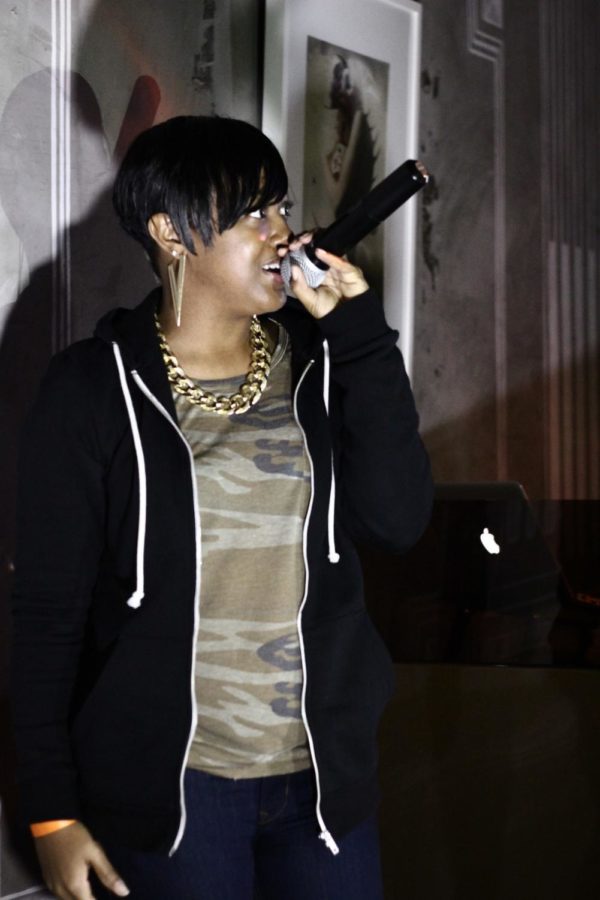Review: Rapsody breaks the mold
Image courtesy Coup d’Oreille/ Wikimedia Commons
Emerging rapper Marlanna Evans, known as Rapsody, recently released an album called “Laila’s Wisdom.”
In the internet age of rap, lyrics that objectify and degrade women have become a staple of the genre, making it difficult for an aspiring female rapper to break the mold. Up and coming female rapper Rapsody is doing just that.
Hip-Hop has always been a male dominated genre. Local activist, equity specialist and Critical Race Studies teacher at Lincoln, Jessica Mallare-Best, said, “The gender inequity in Hip-Hop culture is a reflection of our society as a whole, although many of its pioneers are men.” According to Pitchfork Magazine, there are only five female rappers currently signed to major labels. From this handful, few manage to gain the respect of traditional Hip-Hop fans.
The most popular female rapper in the mainstream, Nicki Minaj, is rarely praised for her skill as an MC, but rather her pop hits and sex appeal. Cardi-B also had an impressive year, her single “Bodak Yellow” remained number one on the Billboard Top 100 for three straight weeks this summer, dethroning Lauryn Hill’s’ “Doo Wop (That Thing)” in 1998 for the longest running number one single from a female rapper. Yet despite this massive accomplishment, she has struggled to gain the respect of more lyrical hip-hop fans.
After signing with Jay-Z’s label – Roc Nation – North Carolina rapper Rapsody already has an impressive discography. She has collaborated with industry giants such as Kendrick Lamar, Talib Kweli, Busta Rhymes, Raekwon, and producers 9th Wonder and DJ Premier.
I personally discovered Rapsody in 2015, through her feature on Kendrick Lamar’s song, “Complexion” (“A Zulu Love”), the 12th track on Kendrick’s critically acclaimed album, “To Pimp a Butterfly.” Rapsody, 34, provides the only feature with a verse on the album, which has been archived in the library of Harvard University. It is one of four albums to receive this recognition, chosen to be “a standard for the culture” according to curator of the archive, 9th Wonder.
The song’s complex production consists of crisp guitar riffs to carry the melody, a funky bass line and hard hitting percussion. It is an ode to Black self-love, a common theme in Rapsody’s music.
Rapsody, also known as Marlanna Evans, seeks out “to preserve and respect the culture” of Hip-Hop, she told Vibe Magazine in 2011. She has released three albums, including her new record, “Laila’s Wisdom”.
Released Sept. 22, it is named after Rapsody’s grandmother, Laila, who had a great influence on the rapper’s life. Rapsody wrote on Genius, a popular website for uploading lyrics, that her grandmother always told her, “Give me my flowers while I’m here,” preaching the importance of expressing the love and appreciation for people around oneself while one can. She wrote of the songs on the album, “These are my flowers that I’m giving to y’all.”
The album’s first track, “Laila’s Wisdom,” features a powerful church choir followed by a fast-paced piano sample, bubbly bass line and crisp drums. Rapsody raps about the importance of self-confidence and shares stories and experiences from her childhood, with lines such as “Growing up I shopped at Kmart and Ross,” and “celebrated every win and learned to learn from all my losses.”
Moving through the album, Rapsody spits about racism, her family, past relationships, and her experience as a black woman, sharing, in my view, beautifully crafted verses full of lyrical skill. The album contains the essence of Hip-Hop, utilizing powerful soul samples on tracks such as “Jesus Coming,” and “Black and Ugly,” featuring BJ The Chicago Kid. She also draws influence from G-Funk, rapping over deep, bubbly bass lines on cuts such as “Pay Up” and “Ridin.’”
“Laila’s Wisdom” is a great project that provides the much-needed representation of a female voice in the sphere of lyrical hip-hop. Rapsody is on the rise, and there’s no limit to how far she will go.

